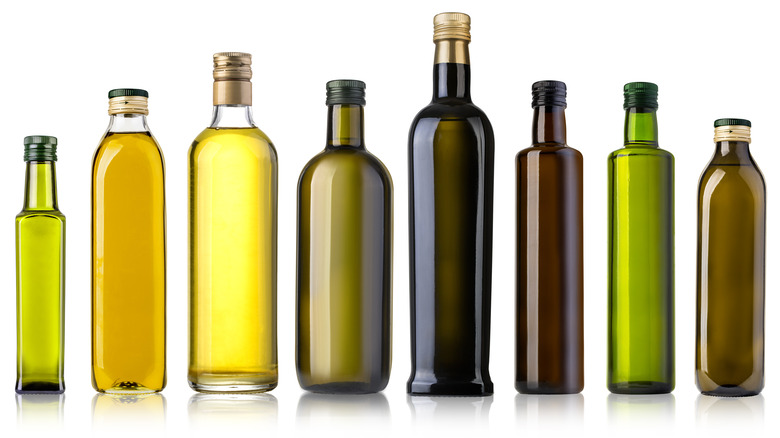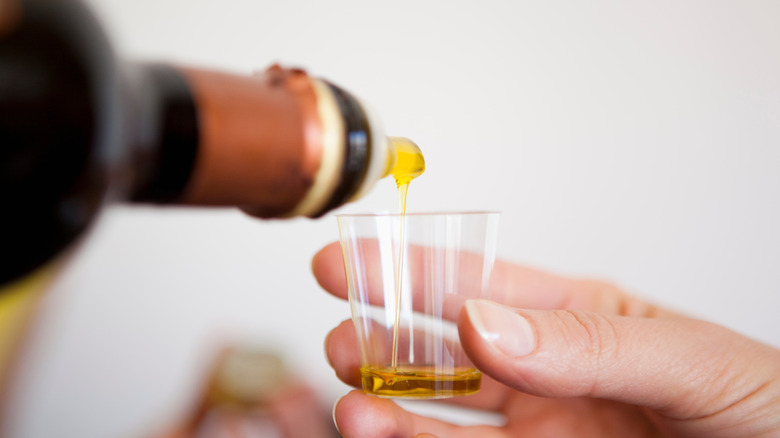How To Tell If That Extra Virgin Olive Oil You're Buying Is Real Or Fake
If there's one ingredient that can rightfully claim ultimate superstar status in the culinary world, it is probably extra virgin olive oil (EVOO). It's been used and loved for thousands of years for its delicious flavor, as well as its medicinal benefits, and provides the foundation for Mediterranean cuisine. Gourmet olive oil shops can be found in many trendy neighborhoods, whereas you don't find, for example, equivalent shops devoted to gourmet soybean oils. To top it off, EVOO has been shown in countless studies to be a healthy fat, which is packed with antioxidants and lots of inflammation-fighting oleic acid. EVOO also helps reduce the risk of stroke and heart disease (via Healthline).
But before you run and buy a gigantic bottle of this liquid gold, a word of caution — EVOO is also one of the most commonly counterfeited and adulterated foods, and some investigation is necessary to determine if the bottle you're holding is actually EVOO.
The best way to tell if it's real is to taste it
To legally qualify as extra virgin olive oil, the oil has to pass a chemical analysis test, as well as a sensory (taste) test by an expert panel. One 2010 study found that 69% of olive oils imported into the U.S. failed to meet the standards for EVOO (via Forbes). A follow-up test in 2011 found that the 5 top-selling EVOOs failed to meet the basic legal standard for EVOO labeling a startling 73% of the time.
Olive oil fraud occurs in two main ways. Either fresh-pressed EVOO is mixed with the previous season's excess oil, or it is "cut" with cheaper seed oils, like soybean or corn oils. In both cases, not only does the flavor of the oil take a hit, but the health benefits of real EVOO are greatly diminished. It took an order from Congress in 2016 to get the FDA to step in and finally start testing imported oils.
You can't tell if your EVOO is the real thing by looking at it — the true test is in tasting it. Real EVOO should smell and taste fresh, not stale or rancid, and have a little "spiciness" to it that tickles the back of your throat (via Australian Extra Virgin Olive Oil).


